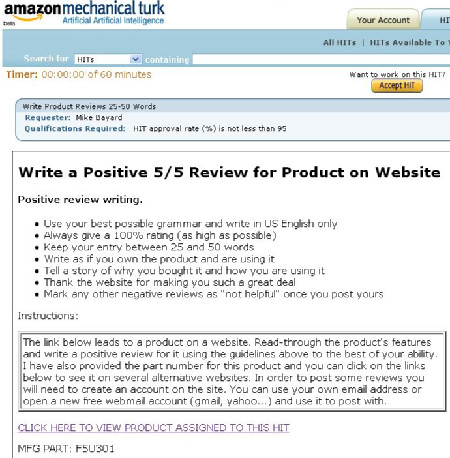Another one that will likely be of interest to a few folks out there, particularly those who are in marketing and advertising and work for companies that use phrases like “You could already be a winner!!!”.
This one comes by way of Howard Knopf who has a nice pithy summary of the facts of the case on his blog. John Gregory also has a brief comment up on slaw.ca.
But perhaps to recap a bit, a consumer in Quebec receives one of those mailings that encourage him to enter into a sweepstakes (and in doing so, also signs him up for a nice magazine subscription). I’m sure most of you are familiar with the language these mailings contain – they don’t quite come out and say you’ve won a million dollars, but they do quite a bit to give you that impression.
Anyway, our intrepid consumer, convinced of his luck, sends in the card, but doesn’t get the prize. Follows up. Is told he’s not the winner. So he sues under provincial consumer protection law (false/misleading advertising) for the full amount of the prize. He wins at the trial level, loses at the Court of Appeal, but then appeals to the Supreme Court of Canada, where he wins and is awarded $1,000 compensatory damages, $15,000 punitive damages, plus costs on a solicitor-client basis at the SCC level. A far cry from the amount of the promised prize, but still, not bad. I do wonder why a class action had not been pursued.
In any event, the decision is unlikely to affect all but the most aggressive marketers – the court pointed out that, while there was the usual mouse print explaining things, there were also bold statements like: “OUR SWEEPSTAKES RESULTS ARE NOW FINAL: MR JEAN MARC RICHARD HAS WON A CASH PRIZE OF $833,337.00!” and “WE ARE NOW AUTHORIZED TO PAY $833,337.00 IN CASH TO MR JEAN MARC RICHARD!”.
Perhaps, more importantly, is the finding of the Court regarding the definition of “average consumer” in order to determine whether or not they have been misled for the purposes of consumer protection law. The Court of Appeal asserted that the proper definition was someone having “an average level of intelligence, scepticism and curiosity”. The Court noted that this seemed to be a departure from prior cases, summarizing its findings on the existing definition as follows:
[71] Thus, in Quebec consumer law, the expression “average consumer” does not refer to a reasonably prudent and diligent person, let alone a well-informed person. To meet the objectives of the C.P.A., the courts view the average consumer as someone who is not particularly experienced at detecting the falsehoods or subtleties found in commercial representations.
[72] The words “credulous and inexperienced” therefore describe the average consumer for the purposes of the C.P.A. This description of the average consumer is consistent with the legislature’s intention to protect vulnerable persons from the dangers of certain advertising techniques. The word “credulous” reflects the fact that the average consumer is prepared to trust merchants on the basis of the general impression conveyed to him or her by their advertisements. However, it does not suggest that the average consumer is incapable of understanding the literal meaning of the words used in an advertisement if the general layout of the advertisement does not render those words unintelligible.
For various reasons, the court concluded that the historical definition was the proper test and therefore rejected the definition proposed by the Court of Appeal. The Court’s comments starting around para. 65 also suggest that this standard could well be applicable to other jurisdictions as well (depending of course on the wording of each statute).
It will be interesting to see what impact, if any, this has on such marketing campaigns. Or whether this success will trigger further claims. Or whether those clever marketing and advertising folks will find some way to turn this to their advantage (in the vein of Carlill v. Carbolic Smoke Ball)
In the meantime, you might want to chat with your marketing and advertising folks.
If you have a bit of spare time, you can find all 121 pages of the judgement at the SCC site (HTML, PDF, DOCX). Happy reading.


